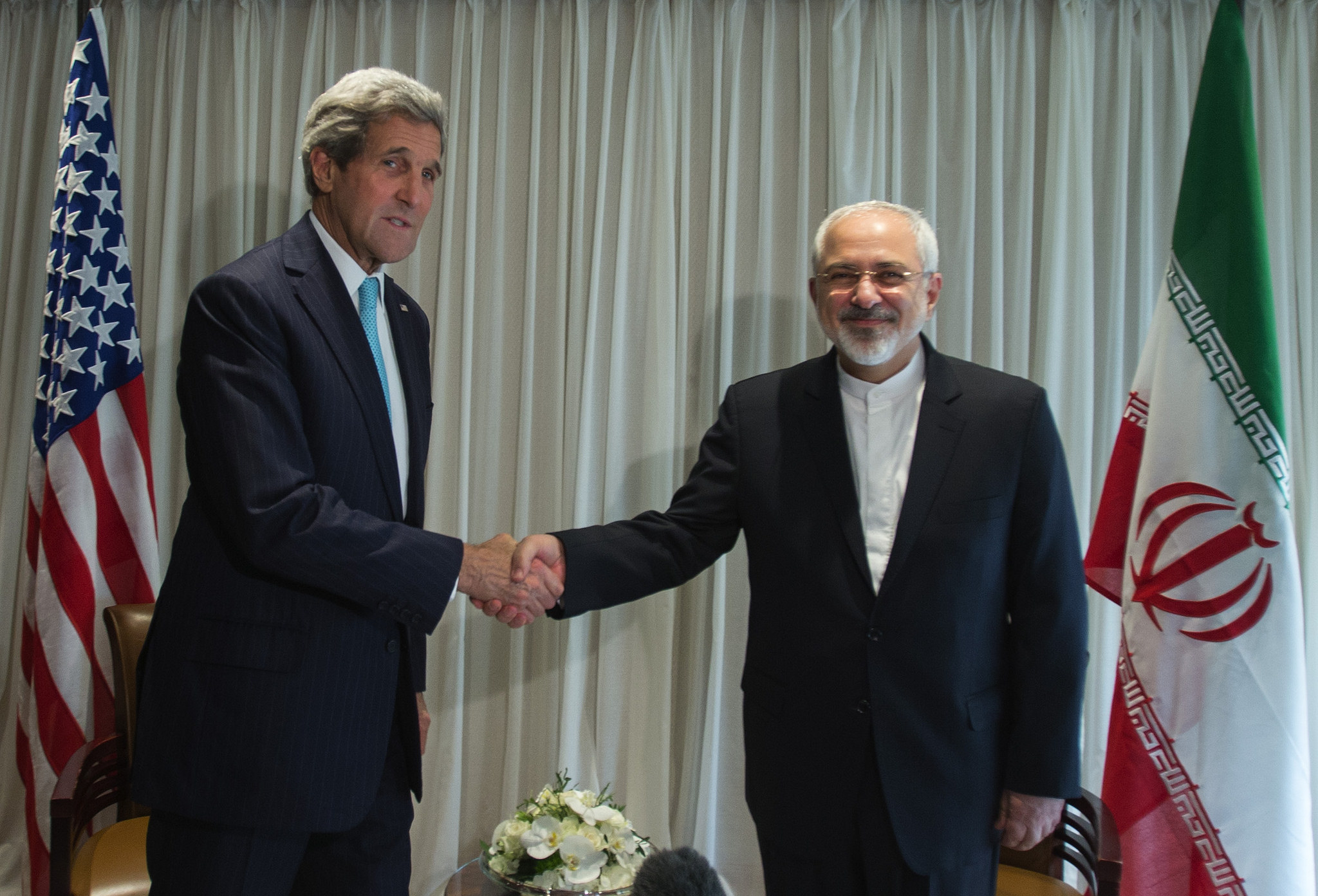Former U.S. Secretary of State John Kerry is back in the news. The once longtime Massachusetts senator is promoting his new memoir and using the book tour to get in as many shots at the Trump administration as he can. But while he’s basking in the applause of those in the chattering classes that already regard the Obama administration as a lost golden age, there is one aspect of his retirement that ought to be raising some eyebrows.
As The Boston Globe first reported back in May, Kerry has not merely been enjoying his post-state department life traveling the world playing the role of elder statesman. He’s been conferring with a former negotiator partner, Iranian Foreign Minister Javad Zarif. The two have apparently been “strategizing” about how to save the nuclear deal they concluded in 2015, during Kerry’s time in office. Kerry has apparently been advising the Iranian regime on how to “wait out” U.S. President Donald Trump and survive the sanctions that are being re-imposed on it now that the United States has withdrawn from the pact. Though he claimed to have done nothing wrong, Kerry confirmed the Globe’sreporting this week during interviews while on his book tour.
The debate about the legitimacy of the Trump administration began with one word: collusion. The probe led by Robert Mueller is rooted in the accusation that Trump and/or his campaign colluded with Russia during the 2016 election.
While there were contacts between Russians and Trump aides, proof of actual collusion has yet to be provided. The country will have to wait until Mueller’s investigation is concluded to know if those allegations were justified, or if the special counsel’s office will merely content itself with charging some connected to Trump with unrelated offenses as has already happened to former campaign chair Paul Manafort.
But regardless of what Mueller does, the collusion charge did end the career of Gen. Michael Flynn, who was forced from his post as National Security Advisor because he was found to have lied to the FBI about holding talks with the Russians prior to Trump’s inauguration. Last year, two of the leading liberal legal scholars in the country argued in The New York Times that Flynn and presidential son-in-law Jared Kushner ought to be prosecuted under the 1799 Logan Act, a law that prohibits U.S. citizens from conducting private diplomacy. Nor were they alone in crying foul about such contacts, even though talks between an incoming administration and foreign nations are hardly unusual.
The Logan Act has almost never been enforced, despite the fact that many Americans have traveled overseas to meet and “strategize” with other nations.
John Kerry did so back in the 1970s when, after his service in the Vietnam War, he and other anti-war activists journeyed to Paris to meet with the North Vietnamese who were fighting the United States at the time. Richard Nixon was also guilty of colluding with the South Vietnamese during the 1968 presidential campaign because he wanted them not to sign any peace agreement that might help the Democrats win the election that year.
Neither Nixon nor Kerry was charged under the Logan Act, and odds are that federal prosecutors will be just as reluctant to dust off that relic of the John Adams administration in the future.
There is nothing illegitimate about Americans advocating for preserving the fatally flawed nuclear deal. But there is a difference between speaking up for a policy position and actively meeting with an enemy.
Kerry may sincerely believe that he advanced the cause of peace by discarding all of the West’s economic leverage in exchange for a piece of paper that both legitimized Iran’s nuclear program and ensured that it will eventually get a bomb, while at the same time becoming enriched and empowered. Yet his efforts to torpedo Trump’s attempt to use sanctions to pressure Iran to give up its nuclear program would also allow it to avoid being held accountable for its terrorism and illegal ballistic-missile production. Kerry is also defending one of his most egregious concessions: the sunset clauses in the pact that will allow restrictions on its nuclear program to expire within a decade, making it inevitable that Tehran will get its weapon of mass destruction without the West being able to do a thing about it.
For a former federal official to seek to help a tyrannical Islamist, anti-Semitic regime counter the efforts of his successor is a disgrace. That it is happening at a time when Iran’s occupation of Syria and aggressive behavior is raising the chances of war with Israel is all the more outrageous. That’s especially true since it was Obama and Kerry who effectively gave the Iranians and their allies the green light to intervene on behalf of the Assad regime so as to entice them to make a nuclear deal at any price. That led to atrocities and the continued use of chemical weapons that Obama and Kerry also promised to stop. Under the circumstances, it’s no wonder that Zarif and the ayatollahs think of Kerry as a trusted friend.
There’s no point in calling for Kerry to be indicted under a law that ought to have been scrapped long ago. But the crickets about Kerry from Trump critics is disappointing. Those who casually lobbed around terms like “treason” to describe Trump’s attitude towards Russia need to acknowledge that Kerry giving aid and comfort to Iran is both immoral and dangerous.


























